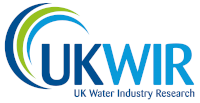The power of data in asset management
Effective decision-making is crucial for the water industry to ensure reliable service deliv-ery. However, many of these decisions are hindered by a lack of confidence in the underly-ing data. To address this challenge, a project was undertaken to develop a framework that would enhance the value of data quality in asset management.
The challenge
Water companies often struggle to assess the quality and reliability of their data. This can lead to suboptimal decisions, wasted resources, and potential service disruptions. A project, criticality and value of data in asset management decision making, was initiated to address this issue.
Falling under UKWIR’s Theme Four (resilient infrastructure systems) and aligned with UN Sustainable Development Goals, the project developed tools and frameworks to enhance data confidence and improve decision-making in the water sector.
Developing the solution
The project was initiated with a comprehensive planning phase, involving the Project Steering Group to define the scope and objectives.
A thorough review and analysis phase was undertaken, engaging stakeholders through various methods such as questionnaires, workshops, and one-on-one meetings. This phase aimed to gather valuable insights and understand the specific data challenges faced by the industry.
During the questionnaire phase, accuracy was the top-rated decision-making attribute, selected as the most important by 32% of respondents. Confidence followed closely, with over half of respondents ranking it first or second.
Armed with these insights, the team focused on developing the core components of the project: the Data Confidence Index and the Value of Information framework. These tools were designed to address data quality concerns and quantify the benefits of data improvement.
Finally, a comprehensive report was compiled, summarising the project findings and recommendations, and a dissemination event was organised to share the outcomes with a wider audience.
Tools for water management
The project created two key tools:
- Data Confidence Index (DCI): A tool used to assess the quality and reliability of data, providing a clear understanding of its strengths and weaknesses.
- Value of Information (VOI) Framework: A framework to quantify the mone-tary value of improving data confidence, enabling informed decisions about da-ta investments.
The DCI is a flexible tool that can be customised to specific organisational needs. It em-ploys a survey-based approach to gather expert opinions on data quality attributes such as accuracy, completeness, and consistency. The results are visualised in a user-friendly dashboard and provide insights into the overall data landscape.
The VOI framework focuses on the economic benefits of improving data quality. It quantifies potential cost savings and revenue gains associated with more accurate and reliable data. By assigning monetary values to different levels of data confidence, deci-sion-makers can make informed choices about where to invest.
Benefits of data-driven decisions
By implementing the DCI and VOI framework, water companies can reap numerous benefits:
- Improved decision making: More accurate and reliable data leads to better-informed decisions - reducing the risk of costly mistakes
- Enhanced regulatory compliance: By ensuring data quality companies can better comply with regulatory requirements and avoid penalties
- Optimised operations: Data-driven insights can help streamline operations, improve efficiency, and reduce costs
- Increased stakeholder trust: Transparent and reliable data builds trust with customers, regulators and investors.
The future of asset management
Data-driven decision-making is essential for the UK water sector to ensure the long-term sustainability and resilience of its infrastructure.
Water companies need to prioritise critical data, improve its quality, and build the nec-essary capabilities to turn this data into a strategic asset. They should also engage in open data-sharing initiatives.
The successful implementation of the DCI and VOI framework represents a significant step forward in data-driven asset management- supporting water companies to unlock the full potential of their data assets by empowering decision-makers with the tools to assess data quality and quantify its value.
To maximise the impact of these tools, it is also essential to establish a community of users to share knowledge and best practices. By promoting collaboration and continu-ous improvement, the water industry can drive innovation and achieve sustainable outcomes.
Find out more
The project managers were Bruce Horton (UKWIR) and the contractor was Arup. The steering group included representatives from Dwr Cymru Welsh Water, Uisce Éireann Irish Water, Scottish Water, Anglian Water, Affinity Water, United Utilities, Southern Water, Northumbrian Water, Wessex Water, Yorkshire Water, Severn Trent, South West Water, Portsmouth Water and South East Water.
